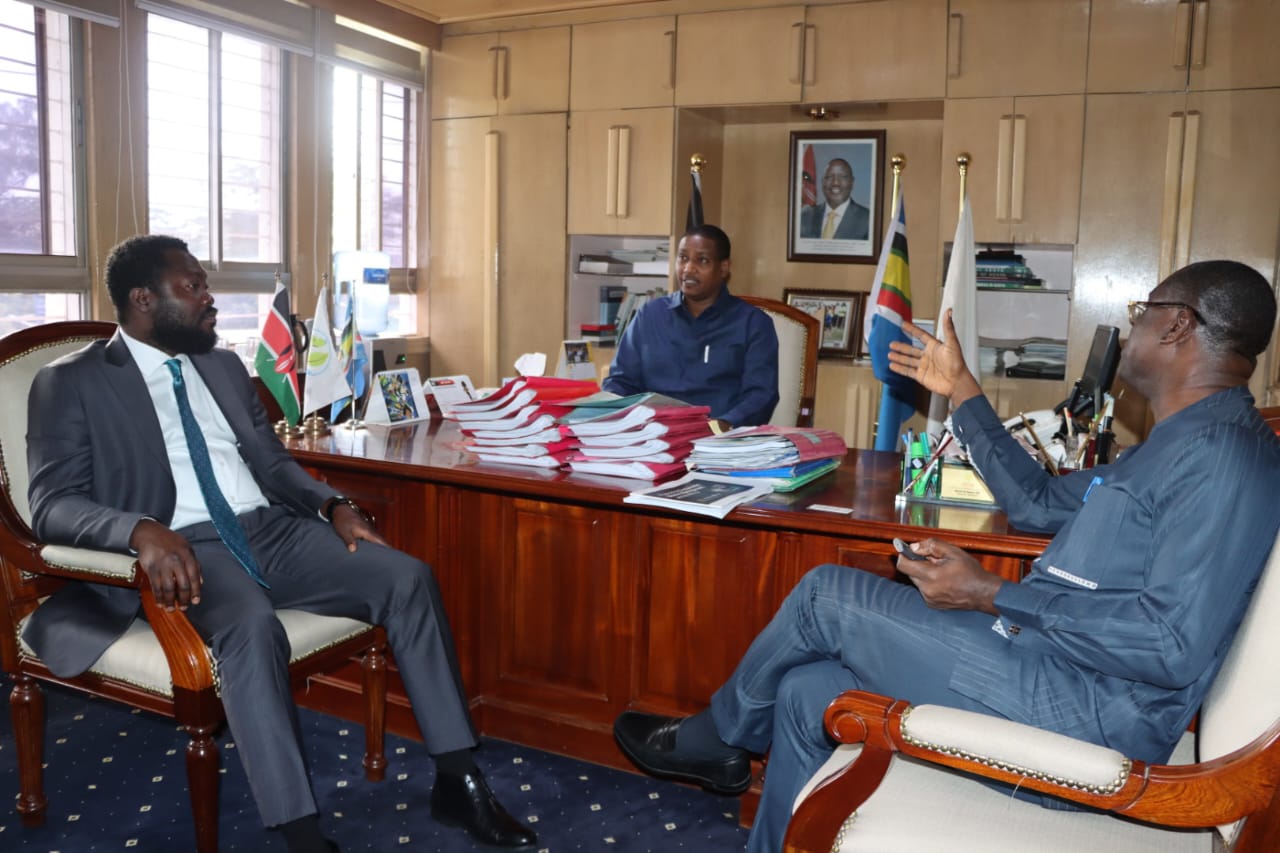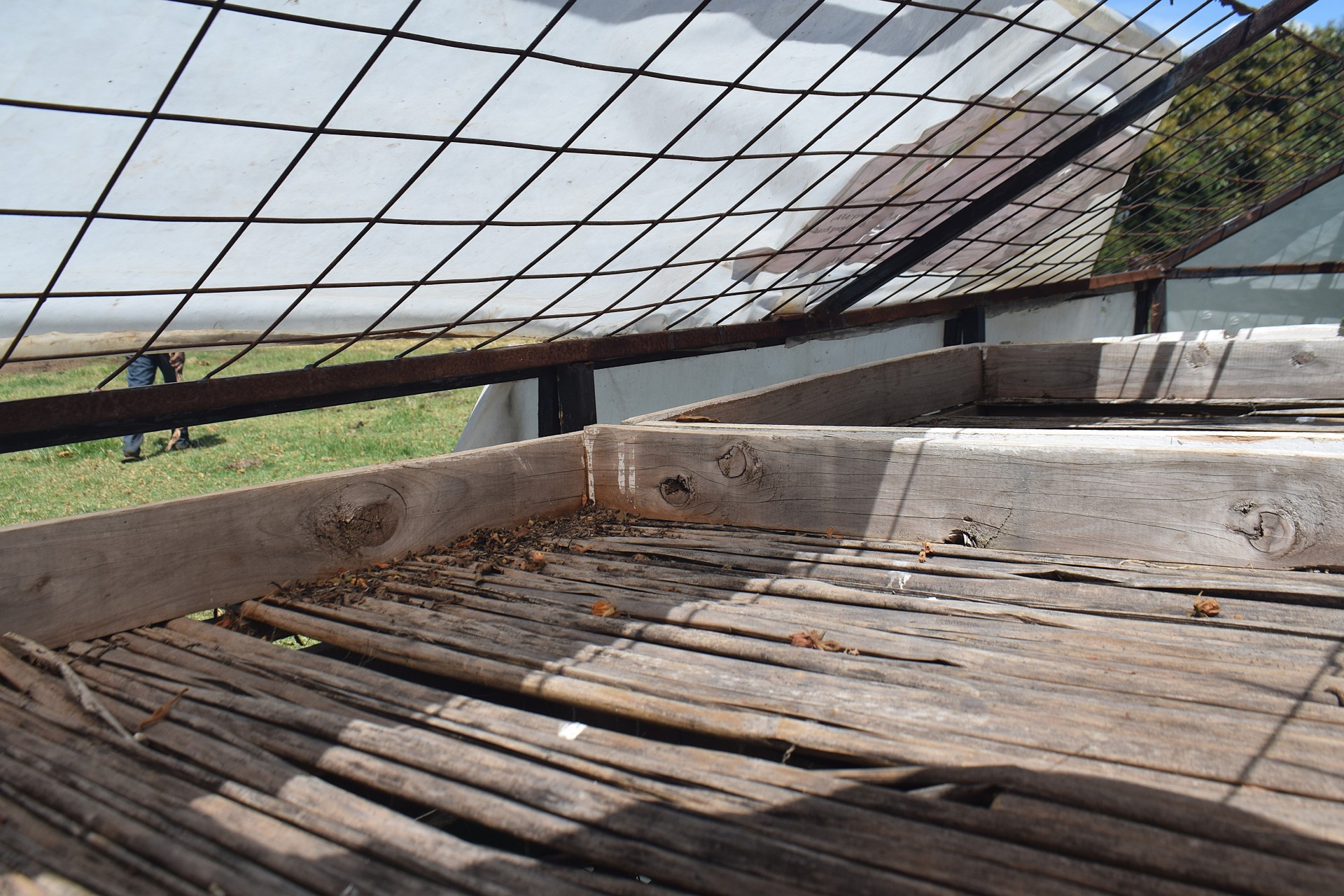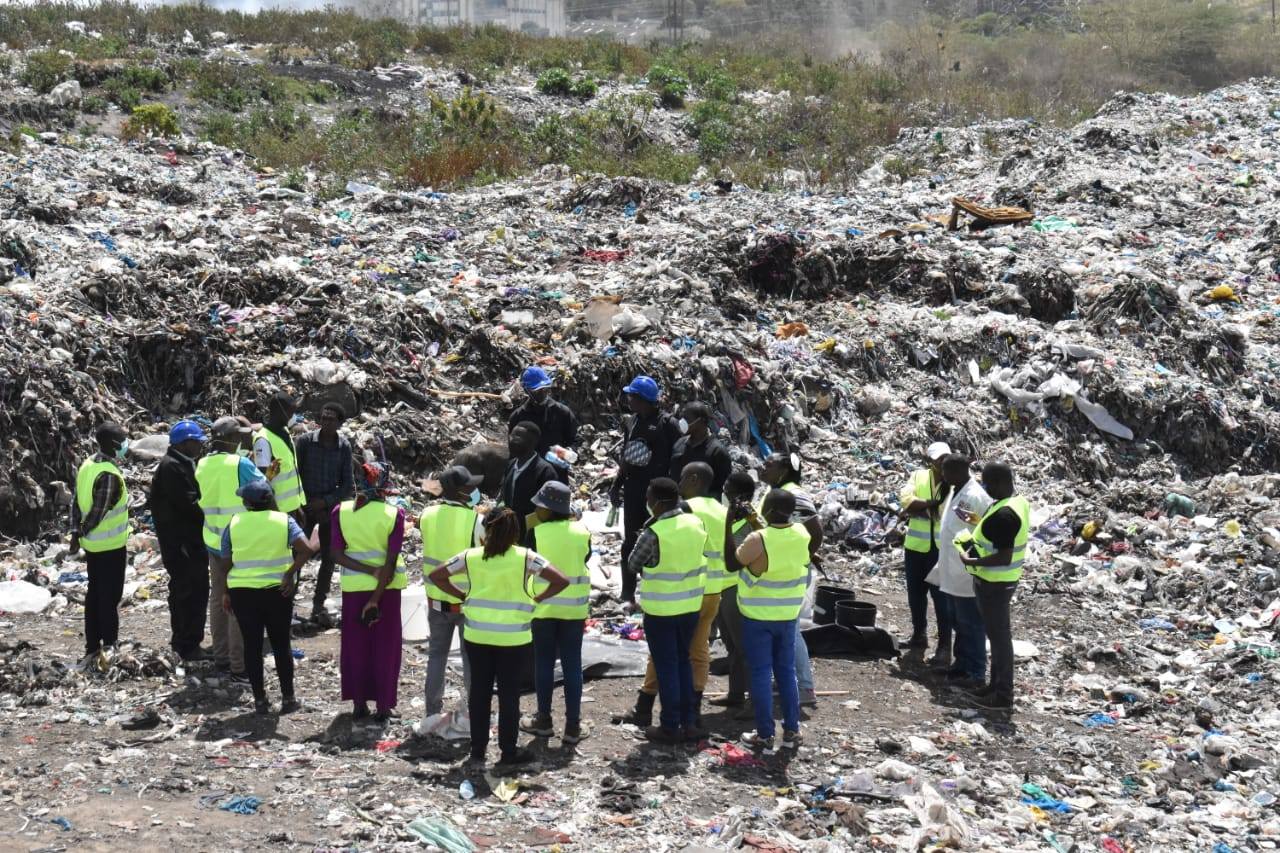- The visit marks a significant step toward fostering cross-border cooperation in environmental management and underscores the role of strategic partnerships in building resilient, sustainable waste systems in Kenya.
On July 4, 2025, the National Environment Management Authority (NEMA) hosted a high-level delegation from Ghana’s Jospong Group of Companies to explore potential areas of collaboration in sustainable waste management.
The delegation was led by the Group’s Executive Chairman, Dr. Joseph Siaw Agyepong, and was received by NEMA Director General Mamo B. Mamo, EBS.
The meeting focused on strengthening bilateral cooperation in the waste management sector, particularly through the proposed establishment of Material Recovery Facilities (MRFs) in Nairobi and Mombasa.
This initiative is aligned with Kenya’s Sustainable Waste Management Act (CAP 387C) and the National Waste Management Policy (2021), which both emphasize the importance of resource recovery, recycling, and circular economy practices.
Jospong Group, a multi-sectoral conglomerate based in Ghana, shared insights into its operations across Africa, particularly in the areas of waste segregation, collection, and material recovery.
Read More
Dr. Agyepong showcased the company’s successful models in waste management and recovery, which have been implemented in several African cities. These models include integrated systems that reduce reliance on landfills while generating employment and economic value through the recovery of recyclable materials.
The delegation expressed interest in replicating these solutions in Kenya by partnering with NEMA and other stakeholders to improve the country’s waste management infrastructure.
NEMA, in turn, emphasized its ongoing efforts to address Kenya’s waste challenges. The Director General highlighted the Authority’s progress in implementing the Extended Producer Responsibility (EPR) regulations, which require producers to take responsibility for the lifecycle of their products, especially post-consumer waste.
This regulatory approach aims to reduce pollution at the source and promote environmentally sound waste practices.
The visit marks a significant step toward fostering cross-border cooperation in environmental management and underscores the role of strategic partnerships in building resilient, sustainable waste systems in Kenya.


-1769677767.jpg)




-1768983522.png)